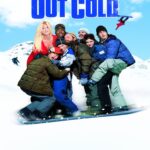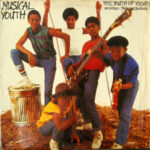 The 2001 snowboarding comedy Out Cold, directed by Brendan and Emmett Malloy, may appear at first glance to be a lighthearted, irreverent romp about a group of misfit snowboarders trying to save their beloved ski resort from corporate takeover. However, beneath the slapstick humor, beer-chugging antics, and snowboarding stunts lies a story structure that unmistakably parallels the timeless classic Casablanca (1942). While the tone and setting differ dramatically, the thematic and narrative connections between these two films reveal that Out Cold is, at its core, a modern reimagining of Casablanca.
The 2001 snowboarding comedy Out Cold, directed by Brendan and Emmett Malloy, may appear at first glance to be a lighthearted, irreverent romp about a group of misfit snowboarders trying to save their beloved ski resort from corporate takeover. However, beneath the slapstick humor, beer-chugging antics, and snowboarding stunts lies a story structure that unmistakably parallels the timeless classic Casablanca (1942). While the tone and setting differ dramatically, the thematic and narrative connections between these two films reveal that Out Cold is, at its core, a modern reimagining of Casablanca.
Setting the Scene
In Casablanca, the story unfolds in the titular Moroccan city during World War II, where Rick Blaine (Humphrey Bogart) runs a nightclub that serves as a hub for refugees seeking escape from Nazi-occupied Europe. The backdrop of war, betrayal, and moral dilemmas sets the stage for Rick’s reunion with Ilsa Lund (Ingrid Bergman), his former lover, who walks back into his life alongside her husband, the heroic resistance leader Victor Laszlo.
Out Cold trades wartime intrigue for the snow-draped fictional town of Bull Mountain, Alaska. Here, the protagonist, Rick Rambis (played by Jason London), works at a ski resort that becomes the battleground for a different kind of conflict: the fight to preserve the town’s quirky, free-spirited lifestyle against the encroachment of corporate development led by the villainous mogul John Majors (Lee Majors). Much like Rick Blaine’s nightclub, the ski resort serves as a gathering place for a colorful cast of characters, blending comedy with moments of heartfelt connection.
The Protagonist: Rick Blaine and Rick Rambis
The shared name “Rick” is the most overt nod linking the protagonists of Casablanca and Out Cold. Both Ricks are world-weary individuals trying to maintain a semblance of detachment from the chaos around them. In Casablanca, Rick Blaine is a cynic with a murky past, masking his broken heart and suppressed ideals under a veneer of aloofness. Similarly, Rick Rambis in Out Cold is a snowboarder who appears to be coasting through life with laid-back charm, but beneath his carefree exterior lies lingering pain from a failed romance.
In both films, the arrival of a former lover disrupts the protagonist’s carefully constructed emotional walls. Rick Blaine’s stoic composure crumbles when Ilsa reenters his life, reigniting unresolved feelings and forcing him to confront his past. Likewise, Rick Rambis is blindsided when Anna (Caroline Dhavernas), the woman who broke his heart during a vacation in Mexico, shows up at Bull Mountain. Her reappearance sets off a chain of events that mirror the romantic tension and personal growth seen in Casablanca.
The Love Triangle
The central love triangle in Casablanca—Rick, Ilsa, and Victor—is echoed in Out Cold through Rick, Anna, and her fiancé, Anthony (David Denman). In both cases, the female lead is torn between her past love for Rick and her current commitment to another man.
In Casablanca, Ilsa’s loyalty to Victor Laszlo and his noble mission ultimately takes precedence over her rekindled romance with Rick. Similarly, in Out Cold, Anna’s relationship with Anthony, who represents the corporate world threatening Bull Mountain, serves as a barrier to her reconnection with Rick Rambis. While Out Cold leans into comedic absurdity rather than high-stakes drama, the emotional beats of the love triangle remain strikingly similar.
The Antagonist and Conflict
In Casablanca, the antagonist is represented by the oppressive forces of the Nazi regime, personified by Major Strasser. Rick’s nightclub becomes a microcosm of the larger geopolitical struggle, with freedom and personal sacrifice hanging in the balance.
Out Cold replaces Nazis with the corporate greed embodied by John Majors, who plans to transform the rustic Bull Mountain resort into a sanitized, luxurious tourist destination. While the stakes in Out Cold are undeniably lower, the conflict still revolves around preserving individuality and resisting homogenization—a modern twist on the themes of freedom and resistance in Casablanca.
Supporting Characters
Both films feature a vibrant ensemble cast that adds depth and texture to their respective worlds. In Casablanca, characters like Sam (Dooley Wilson), Captain Renault (Claude Rains), and Ugarte (Peter Lorre) enrich the story with humor, intrigue, and pathos.
Similarly, Out Cold assembles a ragtag group of friends and colleagues, including the prankster Pig Pen (Derek Hamilton), the eccentric Luke (Zach Galifianakis), and the straight-talking Jenny (A.J. Cook). While these characters serve primarily as comedic relief, their loyalty to Rick and their shared camaraderie mirror the dynamic of Rick’s social circle in Casablanca.
The Climactic Decision
The emotional climax of Casablanca hinges on Rick Blaine’s selfless decision to help Ilsa and Victor escape, even though it means sacrificing his chance at happiness with Ilsa. This moment cements Rick’s transformation from a self-interested cynic to a man of principle who puts the greater good above his personal desires.
Out Cold reinterprets this climactic decision in a lighter, more humorous vein. Rick Rambis ultimately prioritizes the well-being of his friends and the preservation of Bull Mountain over his personal grievances. While the stakes are less dramatic, the thematic resonance remains: both Ricks choose to act for the benefit of others, demonstrating growth and selflessness.
Tone and Genre Differences
While the narrative parallels between Casablanca and Out Cold are undeniable, the two films differ vastly in tone and execution. Casablanca is a romantic drama steeped in tension, moral ambiguity, and poignant reflections on love and sacrifice. Its dialogue is sharp and poetic, and its performances are iconic.
Out Cold, on the other hand, is a raunchy comedy filled with slapstick humor, crude jokes, and outrageous scenarios (including a memorable scene where Zach Galifianakis’s character gets trapped in a spinning car while unconscious). The film’s primary goal is to entertain and amuse, making it an unlikely vehicle for a Casablanca homage. Yet, it’s precisely this contrast that makes the parallels so intriguing; by transplanting the story’s core elements into a completely different context, Out Cold offers a fresh, irreverent take on a timeless narrative.
Conclusion
At first glance, Out Cold and Casablanca couldn’t seem more dissimilar. One is a wartime classic celebrated for its artistry and emotional depth, while the other is a snowboarding comedy known for its irreverence and absurdity. However, a closer examination reveals that Out Cold is essentially a modern remake of Casablanca, reinterpreting its themes, characters, and conflicts through the lens of early 2000s comedy.
This unexpected connection underscores the enduring power of Casablanca’s story, which continues to inspire filmmakers across genres and generations. Whether set in a smoky Moroccan nightclub or a snowy Alaskan ski resort, the tale of love, loss, and self-discovery remains universal, proving that great storytelling transcends time and place.
This post has already been read 187 times!









